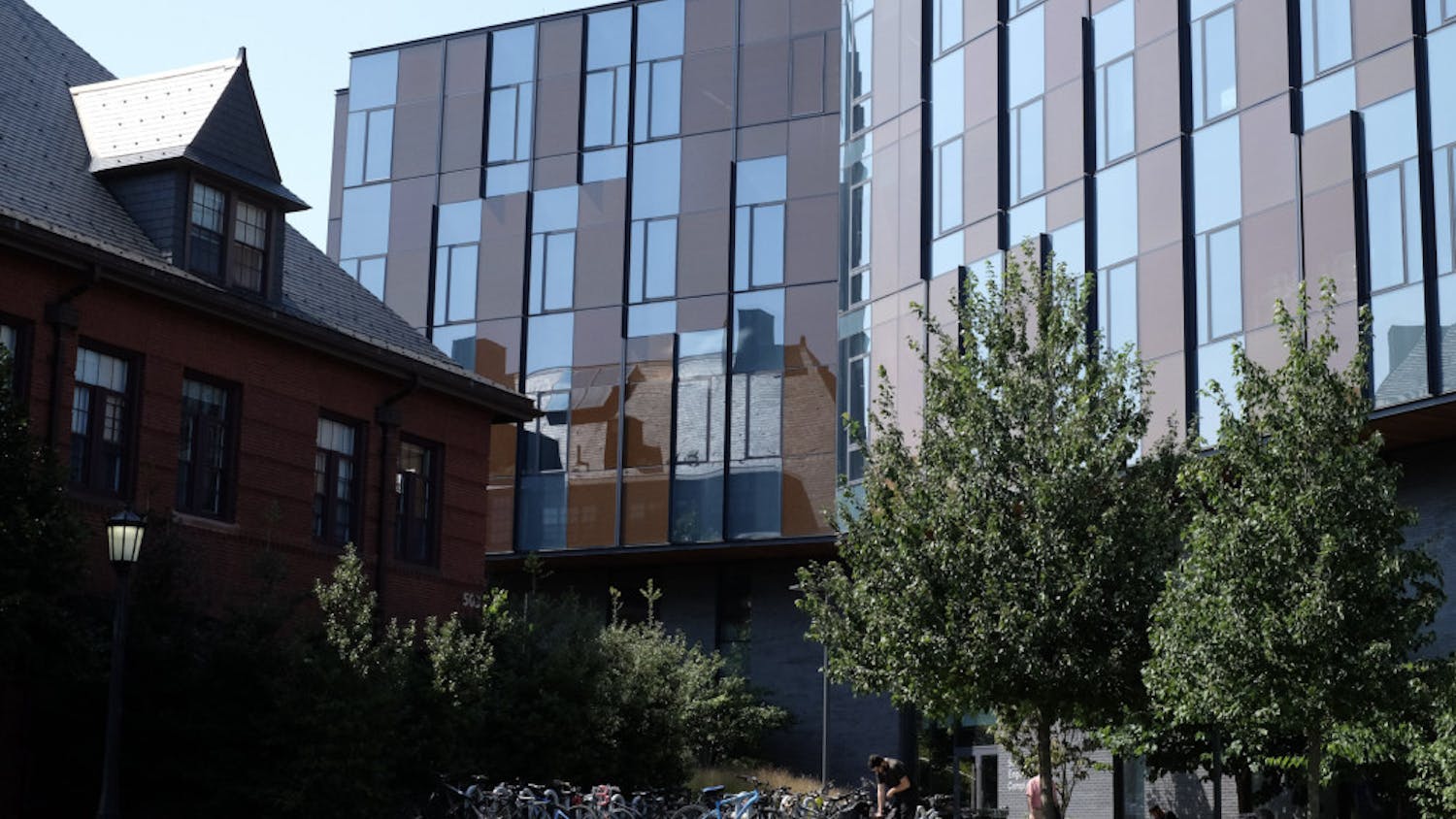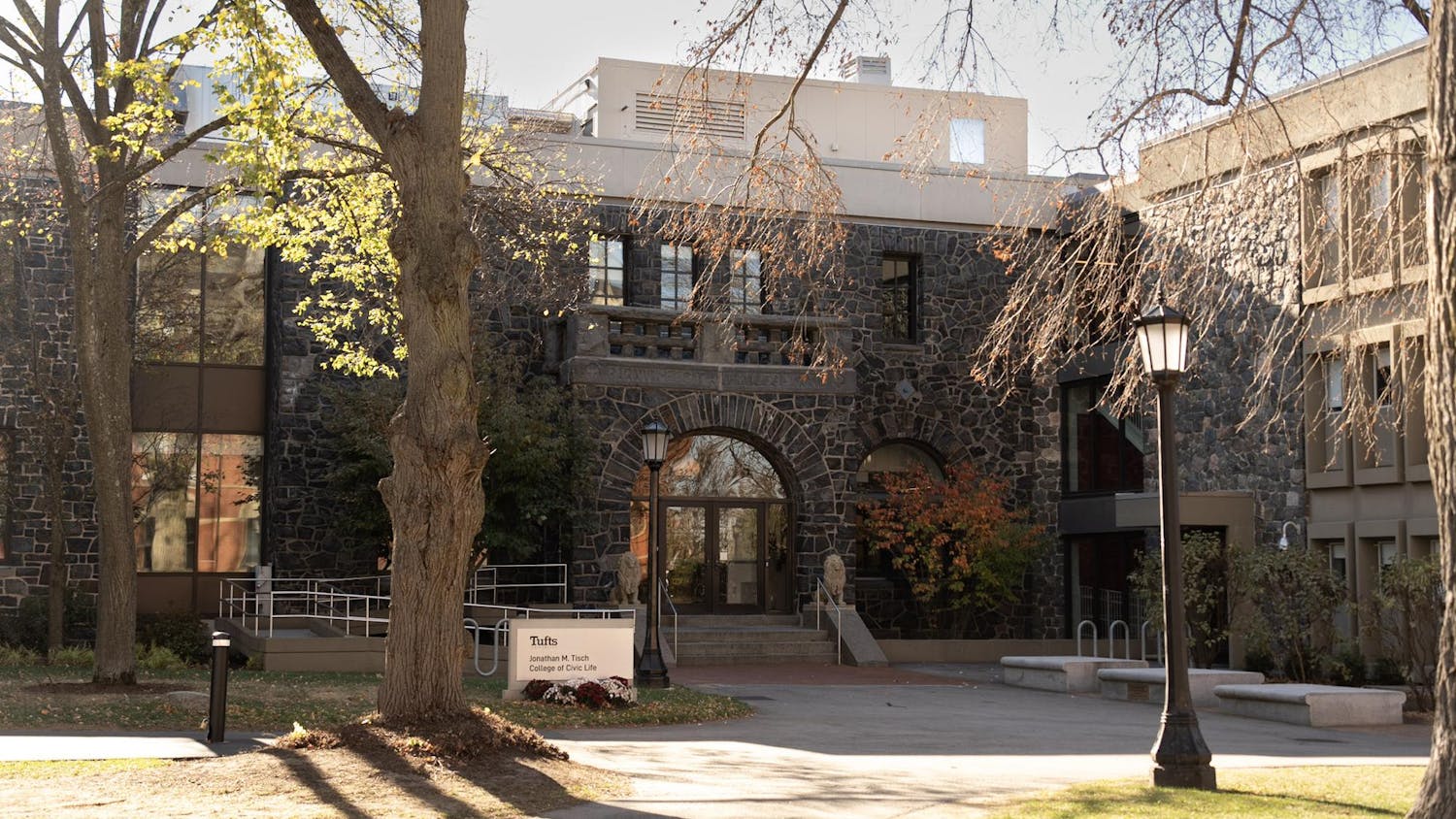Amma Agyei was named the winner of the Tufts Community Union Senate presidential election by the Tufts Elections Commission (ECOM) on April 24. She will serve as the TCU Senate president for the 2021–22 academic year.
The runner-up in the election, Tim Leong, will serve as TCU Senate vice president during the 2021–22 academic year.
Voting for the presidential election took place from April 22 at noon until April 23 at midnight, with the winner announced just after midnight on April 24. Both candidates ran successful campaigns for Class of 2022 TCU Senate seats and were then nominated by the TCU Senate for their presidential bids on April 15.
According to ECOM Chair Mark Lannigan, Agyei won 70.97% of the votes cast. A total of 1,977 votes were cast by Tufts students in the election, equating to a turnout rate of 33.96%.
Agyei is a pre-med student studying biomedical engineering and is the president of the Black Student Union, secretary of the Roti and Rum Dance Team, Africana Center Peer Leader and formerly the Africana Community Senator in TCU Senate.
According to her campaign Instagram account, Agyei was endorsed by several student organizations on campus, including the Tufts Labor Coalition, Tufts African Students Organization and the Black Student Union.
Born in Ghana, Agyei is the first Black woman to be elected TCU president in university history. Agyei moved to the United States during her junior year of high school and campaigned on her desire to bring students of color more representation in the university.
“It’s really exciting to make history,” Agyei said. “[I want to] pave the way for other Black women to be TCU president.”
Passionate about advocating for students of color and their increased representation in campus organizations, Agyei hopes her election victory can inspire other students of color to pursue TCU positions.
“I think [being the first Black woman to be TCU president] goes to show that the Senate environment is not conducive to persons of color,” Agyei said. “The Black student body is just 4% [of the whole] … how many of that 4% are interested in student government, and how many of those interested … are a woman like me?”
Not only is she passionate about Black student involvement in more campus organizations, but Agyei also hopes to make Tufts a more welcoming environment for prospective Black students. She referenced a movement among colleges and universities in the greater Boston area to increase the percentage of Black students on campuses in 2015, and how Tufts has stalled on this promise.
“The demand [of the movement] was to increase the percentage of Black students to 13% … we’re still at 4% and it’s been six years,” Agyei said. “Tufts is not putting in enough effort to make [Black] students who are admitted feel welcome enough to enroll here.”
In terms of future policy, Agyei hopes to initiate reform in the Tufts University Police Department, specifically by disarming officers and helping students feel more comfortable with officers on campus.
“A couple of ideas I had include changing the name from TUPD to Tufts campus safety ... and changing uniforms because honestly, the police uniform is intimidating," Agyei said.
Agyei also hopes to improve conditions at Tufts for low-income students. She found that the transition to virtual learning last spring and the COVID-19 response by the university disproportionately affected low-income students.
“[Tufts] did not think ‘Okay, all classes are online, and some students may not have access to a personal laptop,'" Agyei said. "How do you expect them to be going to their classes? Not everyone has reliable internet connection; did you factor that in?”
Both Agyei and Leong were in communication before the election, and they will both work hand-in-hand to run TCU Senate.
“We talked before, when we both found out the other was running ... we talked about our visions and plans for the campaign and the presidency,” Leong said.
Leong said he believes TCU Senate is in good hands with Agyei at the helm.
“It [was] nice running against somebody who I like,” Leong said. “I think she [will] also do a good job as president.”






